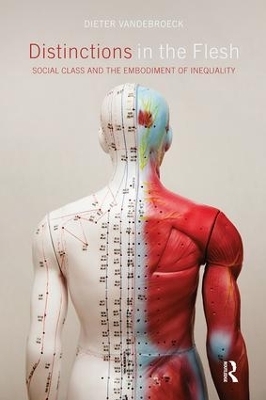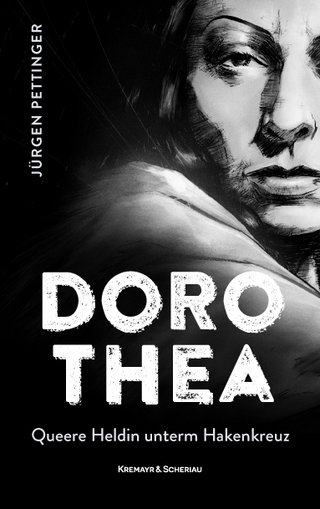
Distinctions in the Flesh
Social Class and the Embodiment of Inequality
Seiten
2018
Routledge (Verlag)
978-1-138-59876-8 (ISBN)
Routledge (Verlag)
978-1-138-59876-8 (ISBN)
- Titel z.Zt. nicht lieferbar
- Versandkostenfrei innerhalb Deutschlands
- Auch auf Rechnung
- Verfügbarkeit in der Filiale vor Ort prüfen
- Artikel merken
Class-inequality is not simply a public issue of labour markets, political structures or systems of education, but seeps into one of the most intimate and personal of relationships, namely that which we develop with our own bodies. This book delves into this relationship and highlights its centrality to the study of contemporary class-identity.
The past decades have witnessed a surge of sociological interest in the body. From the focal point of aesthetic investment, political regulation and moral anxiety, to a means of redefining traditional conceptions of agency and identity, the body has been cast in a wide variety of sociological roles. However, there is one topic that proves conspicuously absent from this burgeoning literature on the body, namely its role in the everyday (re)production of class-boundaries.
Distinctions in the Flesh aims to fill that void by showing that the way individuals perceive, use and manage their bodies is fundamentally intertwined with their social position and trajectory. Drawing on a wide array of survey-data – from food-preferences to sporting-practices and from weight-concern to tastes in clothing – this book shows how bodies not only function as key markers of class-differences, but also help to naturalize and legitimize such differences. Along the way, it scrutinizes popular notions like the ‘obesity epidemic’, questions the role of ‘the media’ in shaping the way people judge their bodies and sheds doubt on sociological narratives that cast the body as a malleable object that is increasingly open to individual control and reflexive management.
This book will be of interest to scholars of class, lifestyle and identity, but also to social epidemiologists, health professionals and anyone interested in the way that social inequalities become, quite literally, inscribed in the body.
The past decades have witnessed a surge of sociological interest in the body. From the focal point of aesthetic investment, political regulation and moral anxiety, to a means of redefining traditional conceptions of agency and identity, the body has been cast in a wide variety of sociological roles. However, there is one topic that proves conspicuously absent from this burgeoning literature on the body, namely its role in the everyday (re)production of class-boundaries.
Distinctions in the Flesh aims to fill that void by showing that the way individuals perceive, use and manage their bodies is fundamentally intertwined with their social position and trajectory. Drawing on a wide array of survey-data – from food-preferences to sporting-practices and from weight-concern to tastes in clothing – this book shows how bodies not only function as key markers of class-differences, but also help to naturalize and legitimize such differences. Along the way, it scrutinizes popular notions like the ‘obesity epidemic’, questions the role of ‘the media’ in shaping the way people judge their bodies and sheds doubt on sociological narratives that cast the body as a malleable object that is increasingly open to individual control and reflexive management.
This book will be of interest to scholars of class, lifestyle and identity, but also to social epidemiologists, health professionals and anyone interested in the way that social inequalities become, quite literally, inscribed in the body.
Dieter Vandebroeck is an assistant-professor of sociology at the Free University of Brussels (Vrije Universiteit Brussel) and a former visiting fellow at the Centre for Research on Socio-Cultural Change (CRESC) at the University of Manchester.
Introduction: Vulgar Object, Vulgar Method
PART I: Social Order, Body Order
1. The Body in Social Space
2. Classifying Bodies, Classified Bodies, Class Bodies
3. The Body in Social Time
PART II: Modes of Embodiment
4. The Perceptible Body
5. The Hungry Body
6. The Playful Body
PART III: Class Bodies
7. Relaxation in Tension
8. Tension in Relaxation
9. Necessity Incarnate
Conclusion: The Visible and the Invisible
Methodological Appendices
| Erscheinungsdatum | 14.07.2018 |
|---|---|
| Reihe/Serie | CRESC |
| Zusatzinfo | 23 Tables, black and white; 9 Line drawings, black and white |
| Verlagsort | London |
| Sprache | englisch |
| Maße | 156 x 234 mm |
| Gewicht | 540 g |
| Themenwelt | Sozialwissenschaften ► Soziologie ► Makrosoziologie |
| ISBN-10 | 1-138-59876-3 / 1138598763 |
| ISBN-13 | 978-1-138-59876-8 / 9781138598768 |
| Zustand | Neuware |
| Informationen gemäß Produktsicherheitsverordnung (GPSR) | |
| Haben Sie eine Frage zum Produkt? |
Mehr entdecken
aus dem Bereich
aus dem Bereich
queere Heldin unterm Hakenkreuz
Buch | Hardcover (2023)
Kremayr & Scheriau (Verlag)
24,00 €
deutsch-jüdische Lebensgeschichten
Buch | Hardcover (2024)
Wallstein Erfolgstitel - Belletristik und Sachbuch (Verlag)
48,00 €


